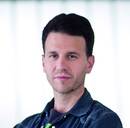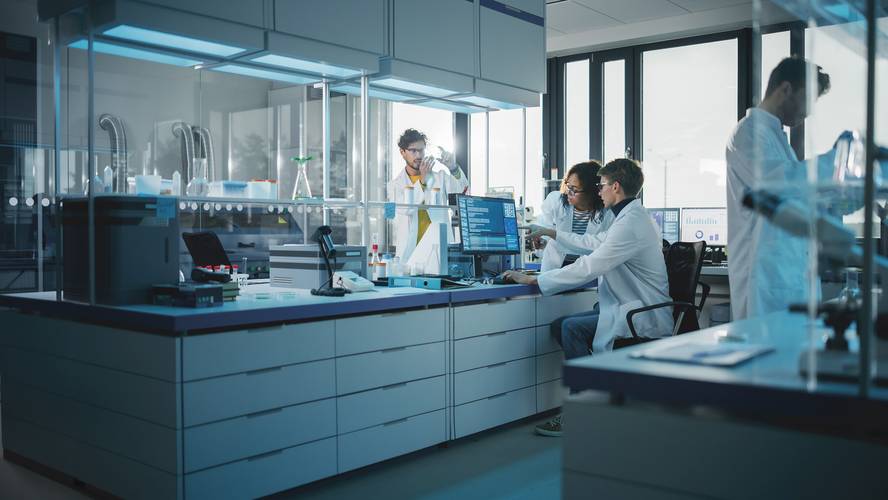Science: 50 years later, what?

Ikertzailea eta irakaslea
Euskal Herriko Unibertsitateko Informatika Fakultatea
I don't like making predictions. Throughout the history of science, we've seen many times how the predictions of great scientists have not even come close to reality. So in this analysis, I'm going to focus on the question, how would you like your area to be in 50 years?
At first I thought of this question as an excuse to talk about the big problems of artificial intelligence, but I came to the conclusion that I don't care much about what my area will look like in 50 years. I am convinced that reality will not upset me. What I mean is that I don't care too much if in 50 years' time you're going to use neural networks or if the problems to solve are some that we don't even know today. Even if you come, it will surely be very interesting.
But in that vortex of thinking, I realized that there was something I really wanted, both in my field and in the others. And that was also in our hands. So I'm going to talk about it today. I want to present two key ideas to you.
- [The importance of basic science and, consequently, its promotion and prestige].
- And closely related to that, the need to take good care of scientists, especially novices.
What is the compass of science?
To start with the first idea, I'll use the example of GPS. GPS couldn't work without knowing the theory of general relativity. Einstein published in 1915 his theory, an effort to understand gravity, which is essential today to use GPS. Do you think Einstein once thought about the practical applications of his theory? He had a puzzle in front of him, he wanted to understand nature. Their goal was basic science.
Today, however, boast words like applied research, development and innovation. But applied research and innovation are useless if you don't do basic science. The discourse of applied research is attractive. In short, we are told to do research, but to solve problems that are important to society. It is normal for our politicians and the majority of society to take up this speech. But unfortunately, history has taught us that science doesn't work that way. We cannot generally predict what knowledge we need to solve a problem.
History has given us a clear lesson in this: the best way to solve the problems of humanity is to generate new knowledge and we must recognize that we cannot lead this process. Solving the big problems of science must be our compass. Therefore, development and innovation are certainly necessary, but this construction requires solid foundations. These bases will necessarily be provided by basic research. And it's not worth that basic research being done elsewhere. History has also shown that the ability to develop applications emerges where basic research is conducted.
An example of Silicon Valley
is the Significant Stanford in the Basque Country. It's a global economic and transformative engine. Well, Silicon Valley wouldn't be all today if it hadn't been Stanford University before. If here in the Basque Country we want to do something like Silicon Valley, we have to build our Stanford first. And this is inevitably the University of the Basque Country. UPV/EHU should not only be a teaching centre. We need to drive forward cutting-edge research at university to generate new knowledge and build the foundations of future prosperity.
And here we will find the second point I mentioned earlier: the need to treat scientists well. Today's science is based on teamwork. In these groups, however, doctorates are often the main protagonists. In short, they are the ones who do the most important work: experiments, necessary developments, tests… We require these PhD students a huge step in order to perform their thesis. They must be the best. Unfortunately, however, we do not reward this step enough. Doctorates have precarious economic conditions and a future full of uncertainties. We're frustrating a lot of training vocations, which is nothing good.
I'm going to tell you an example from my research team. I'm at Hitz Zentroa. Like most research groups, we rely on PhDs. Right now, we have PhDs of enormous standard. Imagine, our PhDs have already worked on Amazon, Facebook and Apple. In some cases, these same companies have been looking for these doctorates. They're paid funds to do an internship in those companies. Here, however, is how to practice, with the aim of doing research. My question is, what future are we going to offer these excellent researchers?
Our responsibility is our responsibility
to deal with these problems. If in 50 years we want an advanced and prosperous Euskal Herria, we must lay the foundations right now. The emergence of problems is often the easiest. The hardest thing is to propose solutions. We will all have to look for these solutions, but here is my small contribution. I should like to leave here three main ideas as guidelines:
- Cutting red tape. In research we work mainly with public money, so I understand that administrations are rigorous in handling the money they give us. But the bureaucracy we have to endure is excessive and often pointless. Let us work to remove that unnecessary bureaucracy. We would earn a lot of hours to do research.
- [Increasing the funding of basic science]. Both for research projects and for the acquisition of the necessary infrastructures. But above all, to improve the conditions for doctorates. We must give them decent conditions and offer them a good future.
- Bet on talent. Predicting the future is almost impossible, so it's very difficult to predict whether one field of science is going to be more important. In 2010, almost nobody talked about artificial intelligence. It's now everywhere. It therefore seems more reasonable to wager on talent than on some areas. Let's give the best researchers what they need, regardless of where they work. Surely the results will come back.
So how would I want it to be my area in 50 years? I would like a basic and strong science in Euskal Herria, including artificial intelligence and language processing. I don't care if there's going to be neural networks or some other system in the bogie, but what I want is for those who do this to do it freely and in dignified conditions. Ah! And whatever I'm there enjoying what they do.






